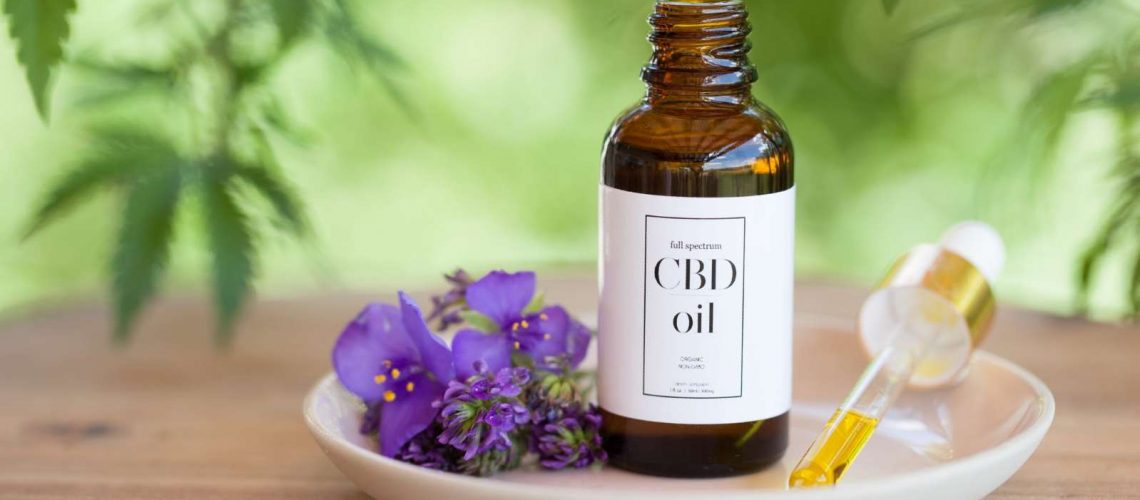In 2018, the federal government declassified hemp as a Schedule I drugged and placed it under the agricultural department. This legalized the commercial use of hemp but simultaneously confused the state level, especially in Kansas, as its residents already had limited access to the plant.
Cannabis-related plants such as hemp and marijuana contain numerous phytocannabinoids; cannabidiol, CBD, and tetrahydrocannabinol are the two most abundant cannabinoids in the plant, making up at least forty percent of the total plant cannabinoids. THC is a psychoactive compound that is still prohibited due to its psychoactive effects on the brain. It also can cause addiction issues, consequently leading to its abuse. CBD is anxiolytic; it exhibits no addiction issues in its user. Ongoing research shows that CBD has many benefits, such as treating mental issues and skin conditions, elevating mood, and managing insomnia-related issues. Due to regulations, CBD is mainly obtained from hemp due to the low amounts of THC. This makes it easier to produce while adhering to the law.
Legal Issues Regarding CBD
In 2018, the Farm Bill was passed by Congress, legalizing hemp farming by removing it from Schedule 1. The Farm Bill defined marijuana as cannabis with more than 0.3% THC and hemp as cannabis with less than 0.3% THC by weight. CBD generated from hemp was taken off Schedule 1. However, CBD derived from marijuana remains banned under federal law due to marijuana’s status as a Schedule 1 substance. Although it is subject to special federal rules that were not yet in place when hemp was made lawful, it is still regarded as an agricultural product.
The Farm Bill gave the Food and Drug Administration (FDA) authority to control CBD’s labeling, therapeutic claims, and inclusion in foods and beverages. Production and sales of hemp, including CBD and its cannabinoids, are still subject to stringent federal regulations. According to the Farm Bill, individual states may additionally control and forbid the cultivation and trade of CBD. Corroon et al. (2020) stated that Independent of the FDA’s guidelines, states may try to regulate CBD in food, drink, dietary supplements, and cosmetic items. Kansas has a pilot program for industrial hemp and is now writing hemp laws that will be submitted to the USDA for approval.
CBD Laws In Kansas
The Alternative Crop Research Act was created in Kansas due to the 2014 Farm Bill. It allowed public institutions to collaborate with residents to cultivate hemp material with a maximum THC content of 0.3% for research purposes. The state started hemp farming later than planned since the bill, known as SB 263, wasn’t enacted into law until 2018. A month later, Governor Jeff Coyler signed SB 282, which amended the state’s legal definition of “marijuana” to remove CBD. A Supplemental Note included with the new legislation states that CBD products are now legal throughout the state due to this bill. The legal definition of “marijuana” under Kansas law continues to include goods containing any THC level. In Kansas, one can only purchase CBD products that are THC-free. Several measures were passed in 2019 by Governor Laura Kelly to advance the state’s hemp program and safeguard CBD customers. The Kansas Industrial Hemp Program has been formally established thanks to HB 2167. SB 28, passed in May of the same year, shields parents who use CBD products with their children from removal. However, for CBD products to be accepted for sale in Kansas, they must be produced by the state’s hemp program and be free of even minute quantities of THC.
Additional CBD Law Regulation Regarding CBD In Kansas
Participants in the Industrial Hemp Pilot Program, such as research distributors, farmers, and processors, are supervised and licensed by the KDA. Before their license is authorized, applicants must pay a non-refundable $200 application fee and undergo extensive background checks before being accepted into the program. Participants who have been convicted of offenses using controlled substances are not permitted. The producer and seller of all CBD products sold in Kansas must put a list and description of all ingredients on the product’s label, a declaration of CBD purity, and a warning that using CBD may harm the user’s health. The first sample collection charge for participants in the Industrial Hemp Research Program is $47 per hour, and each lab test has a $250 testing fee. This ensures that the THC in a crop is no more than the allowed amount. The plants must be destroyed.
Where to Buy CBD Products In Kansas
Chesney et al. (2020) revealed that the CBD industry is experiencing exponential growth of late, with numerous CBD products being marketed for their health benefits, such as CBD gummies for sleep. However, this also implies an increase in the amount of counterfeit CBD products that are marketed as wonder drugs. One should be wary of such claims as CBD has many medical benefits to the body, some of which are still under scrutiny by scientists. Here are some guidelines on what to look for when buying CBD:
- Ensure that a third-party lab verifies the quality of your CBD products. These labs can confirm that the product’s CBD level corresponds to what is advertised and is free of impurities.
- CBD is very adaptable and can ease a variety of problems. It won’t resurrect the dead. However, if a company makes extravagant claims, it is probably a scam and best avoided altogether.
- Purchase from enterprises that extract their products using CO2. Since no additional solvents or heat are used during CO2 extraction, your CBD remains pure and untainted.
Herein are places where you can buy CBD from local stores found in Kansas:
- CBD KC
- The hemp has
- Green Groove CBD
- Natural Wellness CBD
- Hemp haven Gladstone
- Midtown Kava
However, purchasing CBD from online stores is best as it has some added benefits. These include that most CBD products, such as pills and capsules, are generally cheaper and often have some form of discount. It is easy to verify the third-party laboratory that verified the contents of these products. Buying CBD from online stores is effective as one can purchase these products with the click of a button. Moreover, online stores provide more info and varieties on the products, such as tinctures.
Types of CBD
CBD is mainly obtained from hemp, particularly its leaves, stems, roots, and flowers. These undergo various extraction processes. Common methods include carbon dioxide concentration and solvent extraction, which dissolve these essential oils before further extraction. Hemp extracts are mainly grouped into three categories based on their concentration and availability of other cannabinoids and compounds. These yield the following types of hemp extracts:
Broad-Spectrum CBD Oil
Broad-spectrum CBD oil includes all other hemp extracts except THC. These include compounds such as terpenes and flavonoids, responsible for CBD oil’s taste and aromatic scent. Lo (2022) stated that CBD oil has a bitter earthy flavor which is why most individuals prefer CBD oil infused in edibles such as gummies. Broad-spectrum CBD oil contains additional cannabinoids such as CBG, CBN, and CBDV. However, CBN is mildly psychoactive and is thus prohibited in some countries. Hazekamp (2018) stated that broad-spectrum CBD is generally preferable to individuals who want the benefits of all hemp extracts without taking THC or are prone to drug tests.
CBD Isolates
CBD found in its pure form is known as isolates. This form of CBD is 99% pure, contains no other compound, and is mostly found in powder resembling confectioners’ sugar or crystal form. This CBD is mostly employed by people who want only CBD and do not ingest other compounds. It is mostly used to make pills and capsules and can also be used when preparing food substances due to its pure nature as it contains no taste or additional flavor. However, it is better to approach CBD isolates with care as their dosages can vary slightly from other forms due to their potency. Therefore, it’s prudent to seek medical advice before using CBD isolate.
Full-Spectrum CBD Oil
Full-spectrum CBD oil contains all the extracts from hemp except for plant material. It contains limited amounts of THC as described by laws to 0.3% by dry weight. It is important to note that these low amounts can not make one high even when overdoses with full spectrum oils. Topical products with full spectrum CBD tinctures are best utilized when one wants localized relief instead of general body administration. The full -spectrum offers the much-needed entourage effect, which has been known to bolster the availability of CBD to the brain neurons due to the extra cannabinoids and compounds.
Conclusion
CBD is legal for commercial and private use in Kansas. However, the state has laws prohibiting the use of CBD products obtained from marijuana or containing any trace amounts of THC. Some brick-and-mortar stores sell CBD, such as CBD KC. However, it is better to buy CBD from online stores as they have advantages over physical stores. CBD is mainly obtained from hemp and categorized into a full spectrum, broad spectrum, and isolates, each of these products is differentiated by its composition and concentration.
References
Chesney, E., Mcguire, P., Freeman, T. P., Strang, J., & Englund, A. (2020). Lack Of Evidence For The Effectiveness Or Safety Of Over-The-Counter Cannabidiol Products. Therapeutic Advances In Psychopharmacology, 10, 2045125320954992.
Corroon, J., Mackay, D., & Dolphin, W. (2020). Labeling Of Cannabidiol Products: A Public Health Perspective. Cannabis And Cannabinoid Research, 5(4), 274-278.
Hazekamp, A. (2018). The Trouble With CBD Oil. Medical Cannabis And Cannabinoids, 1(1), 65-72.
Lo, M. (2022). The Weed Gummies Cookbook: Recipes For Cannabis Candies, THC And CBD Edibles, And More. Simon And Schuster.
Anastasia Filipenko is a health and wellness psychologist, dermatolist and a freelance writer. She frequently covers beauty and skincare, food trends and nutrition, health and fitness and relationships. When she’s not trying out new skincare products, you’ll find her taking a cycling class, doing yoga, reading in the park, or trying a new recipe.
- Vaporesso’s Magical POD Vaping Odyssey: My Enchanted Adventure and Reviews - September 11, 2023
- What are the Best THC-V Products - August 11, 2023
- Best THC-P Products Reviewed - August 11, 2023



